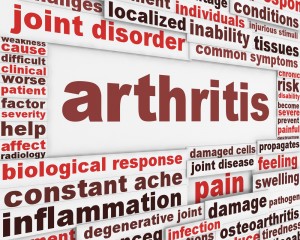-
 Minnesota
MinnesotaUltrasounds Spot Heart Disease Early in Rheumatoid Arthritis Patients
ROCHESTER, Minn. — May 31, 2012. Special echocardiograms show promise for early detection of a potentially deadly complication in rheumatoid arthritis: heart disease, Mayo Clinic research shows. The findings were being presented at The European League Against Rheumatism annual meeting in Berlin. Rheumatoid arthritis patients are at higher risk of cardiovascular disease and it is important to take steps to intervene, but the risk assessment tools physicians commonly use often underestimate the danger.

VIDEO ALERT: A video interview with Sherine Gabriel, M.D., is available for journalists to download on the Mayo Clinic News Network.
Myocardial strain imaging using a special type of ultrasound called speckle-tracking echocardiography can detect early abnormalities in heart function unique to rheumatoid arthritis patients, and may be an effective way to screen them for cardiovascular disease, the Mayo study found.
"The challenge that we've had in our studies, and other people have had as well, is identifying patients with rheumatoid arthritis early enough so that we can intervene, before the symptoms become clinically apparent," says senior researcher Sherine Gabriel, M.D., a Mayo Clinic rheumatologist and epidemiologist. "So before they have a heart attack, before they have heart failure, so that we can identify those high-risk patients early, at a time when we can make a difference."
In rheumatoid arthritis, the immune system attacks tissue, inflaming joints and sometimes affecting other organs. A recently published Mayo Clinic study found that two commonly used heart disease risk assessment tools — the Framingham and Reynolds risk scores — often underestimate the danger faced by rheumatoid arthritis patients.
They are in greater danger not only of the kind of heart disease that causes heart attacks, but the type that causes heart failure, Dr. Gabriel says. Mayo Clinic is working to develop a more effective risk assessment tool, but in the meantime, the echocardiogram findings are an important step forward, she says.
Researchers studied 100 rheumatoid arthritis patients with no known cardiovascular disease and 50 people without rheumatoid arthritis or heart disease, matched by age and gender. The arthritis patients' strain echocardiograms showed cardiac impairment the healthy patients didn't have. The impairment had a unique pattern that could be used to indicate heart disease before patients have clinical signs, Dr. Gabriel says.
"It's potentially part of the answer," she says. "Our research team here at Mayo is working to identify better ways to predict heart disease in persons with rheumatoid arthritis, including developing better risk scores, imaging tests and perhaps better blood tests. We're also evaluating a number of immunological blood tests that could help us identify patients early, and exploring better imaging approaches like myocardial strain that can help us identify patients with RA who have heart problems as early as possible."
Researchers used records from the National Institutes of Health-funded Rochester Epidemiology Project, whose resources make Olmsted County, Minn., one of the few places worldwide where researchers can examine medical data on virtually everyone in a defined geographic area to find the true frequency of particular conditions and the success of treatments.
The study was funded by the National Institute of Arthritis and Musculoskeletal and Skin Diseases. The research team included Nowell M. Fine, M.D.; Cynthia Crowson; Grace Lin, M.D.; Jae Oh, M.D.; and Hector Villarraga, M.D.
###
About Mayo Clinic:
Recognizing 150 years of serving humanity in 2014, Mayo Clinic is a nonprofit worldwide leader in medical care, research and education for people from all walks of life. For more information, visit 150years.mayoclinic.org, www.mayoclinic.org and newsnetwork.mayoclinic.org.
Media Contact: Sharon Theimer, 507-284-5005 (days), newsbureau@mayo.edu







